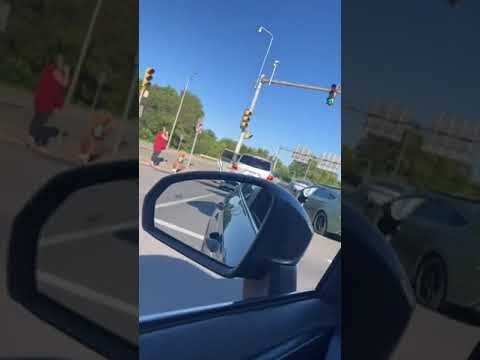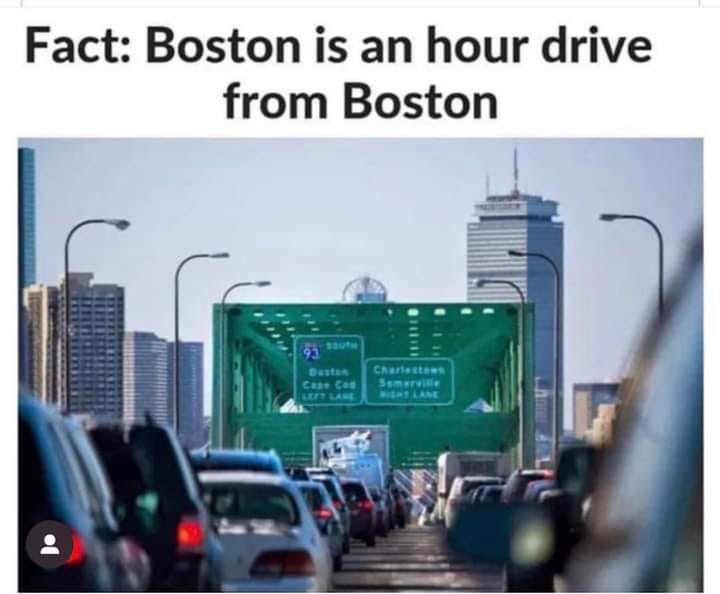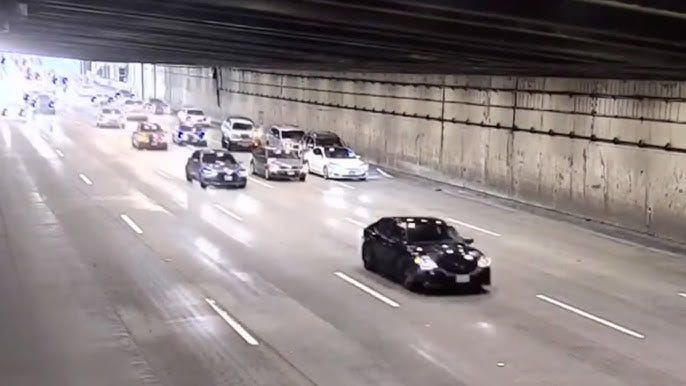Some people are afraid to drive in Boston because they recognize the local driving culture and find it hard to adapt. Computers cannot understand culture and thus may not be able to adapt. And we are all subject to car manufacturers’ experiments most did not sign up for.
Automobile driving is a collective behavior. I know, it seems super-individualized in that everyone can operate their own vehicle in the directions and speeds that they are capable of, but driving a car involves more than the agency of the vehicle operator. As the saying goes, “If you are in traffic, you ARE traffic.”
Current self-driving technology is being incorporated into individual vehicles, which are being unleased onto public byways. Those who purchase this cutting-edge, experimental software have been informed of the risks of operating it and have been legally disclaimed to ALWAYS be in a mental and physical state to take over operation of the vehicle--because the developer does not know where all the glitches are yet, and YOU are taking responsibility for covering for those you can. (Note that your calculator software does not come with a similar warning to be prepared to do math on paper at any time, and that is because the software has been fully debugged).
So we have experimental software that is operating 1-ton vehicles traveling up to whatever the local speed limit is, and maybe beyond it because we still can't be certain it will follow speed limits (Be prepared to press the brake pedal at all times). We know these things are having occasional, lethal problems, and we are reassured the software produces fewer glitches per mile driven than humans (perhaps true, but what are the types and severity of the crashes and struck pedestrians, relative to human-operators?).
But driving has a quotidian culture—it varies by place and time, and different geographic regions (states, especially) have different formal controls, while local operator populations have informal controls and normal deviance. In some places, most people drive by the book, all the time. In others, fellow drivers expect speed limits to be exceeded, while turn signals may or may not be used, and passing lanes are occupied for regular travel. Police observe these behaviors regularly in the Boston area and do nothing.
Self-driving vehicles will become more dangerous in some situations by being operated as programmed, rather than via a sentient adaptation to culture. This is again why conceiving of automobile driving in traffic as an individual behavior—and designing a vehicle to operate in a field where there are few or no other vehicles sharing the software (sharing the "culture")—is fundamentally flawed.
All other operators never signed up to be part of the Beta test of the self-driving software, yet they are expected to bear the costs of its glitches. Socialism, indeed, without any consideration of sociality. Typical capitalists.
Driving is about to become a bit more interesting, as we negotiate traffic made up of sentient and non-sentient operators. I suspect most people will override the autopilot--especially in the Northeastern cities--as they are warned to be prepared to do at any time. Even when the software appears fully debugged, it will take a different program entirely to adapt to local variances in driving culture.
Self-driving cars are also going to lead to more than one grandmother arriving dead to Thanksgiving dinner. There will be all sorts of new things to look forward to!





